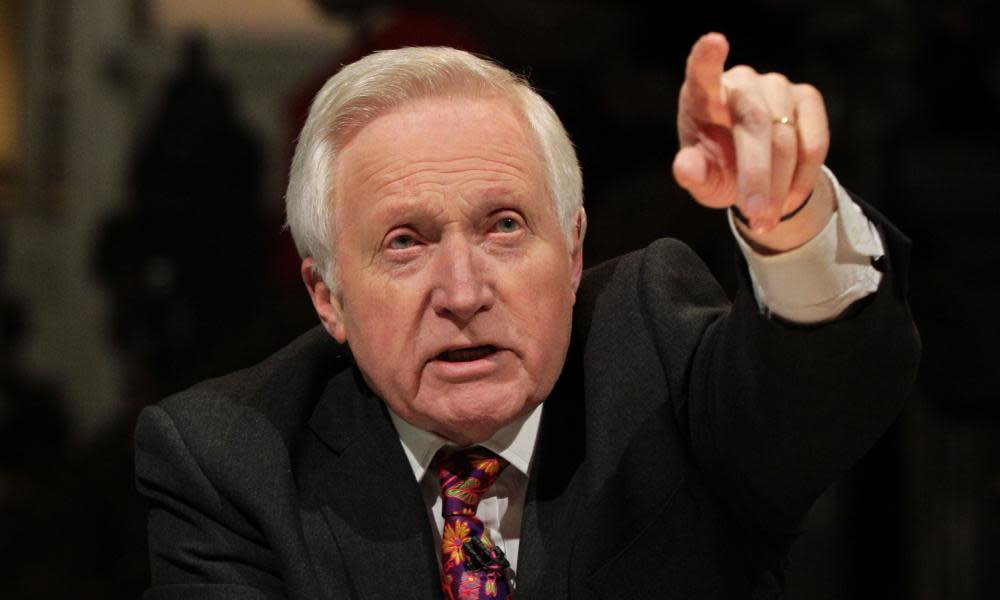David Dimbleby to step down as chair of BBC's Question Time

David Dimbleby is to step down as chairman of the BBC’s Question Time programme after 25 years in the job.
“At the end of the year I will have been chairing Question Time for a quarter of a century and I have decided that this is the right moment to leave,” the presenter said.
“It has been a privilege to work for a programme which brings voters face to face with those in power. I am grateful to the production teams and to the BBC who have made this possible. It has been exhilarating following the twists and turns of British politics from John Major in 1994, through the [Tony] Blair and [Gordon] Brown years to [David] Cameron and May.”
Dimbleby turns 80 later this year, but insists he has no plans to retire from journalism: “Instead, after years in the studio, I now plan to return to my first love: reporting.”
The BBC director general, Tony Hall, said the broadcaster and the British public were “extraordinarily lucky to have him in what are – to say the least – interesting times politically and socially … We look forward to working with him on other projects in the future.”
Question Time has often hit the headlines while Dimbleby has been at the helm, most notably when it gave a platform to the BNP’s Nick Griffin while enormous protests took place outside the studio.
His tenure comes to an end with a final broadcast on 13 December 2018.
His decision to leave the high-profile Thursday night discussion show will open up a fierce competition among candidates who hope to replace him. Leading internal candidates include the Newsnight presenters Emily Maitlis and Kirsty Wark, the Today programme hosts Nick Robinson and Mishal Husain, and Desert Island Discs’ Kirsty Young.
The BBC could choose to go for a more leftfield choice such as Victoria Derbyshire, whose morning news show has won a series of awards, or the 5Live presenter Emma Barnett, who received plaudits after standing in for Andrew Marr on his Sunday programme earlier this year.
Dimbleby is one of only three presenters to have hosted Question Time since it was first broadcast in 1979. The others were Robin Day and Peter Sissons. There is likely to be pressure for the programme’s new chair to be a woman.
The current host has gained a cult following during his time on the programme, attracting parody Twitter accounts and even dancing competitions. “I do know there’s a Dimblebot and there’s a Dimbledance and I can do it too,” he said on the show in 2011.
Dimbleby has only ever missed one episode of the show, when he was admitted to hospital after being kicked by a cow at his rural Sussex home in 2009.
The presenter has also anchored the BBC’s election night coverage since 1979. Four years ago the broadcaster announced that he would be replaced in this role by the News at Ten host Huw Edwards but Dimbleby has managed to cling on, leading television coverage of the EU referendum and last year’s general election.
Dimbleby is from a broadcasting family. His father was the pioneering BBC journalist Richard Dimbleby, who provided commentary on the Queen’s coronation and hosted Panorama. His brother is Jonathan Dimbleby, who has hosted Question Time’s sister programme Any Questions? on BBC Radio 4 since 1987.

 Yahoo News
Yahoo News 
